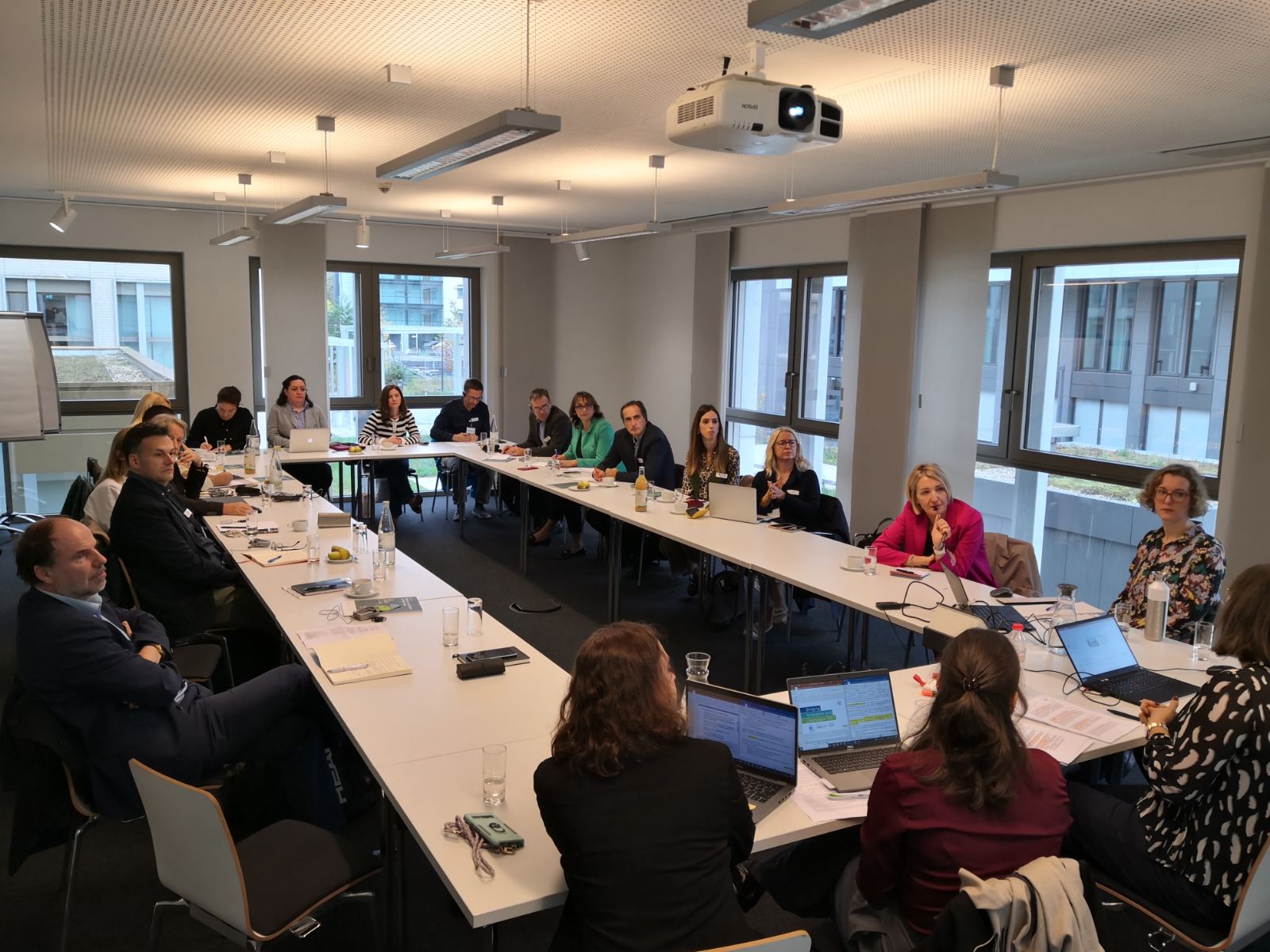Incorporating the principle of sustainable development into the education system is essential for equipping young people with necessary skills and knowledge to successfully navigate complex and rapidly changing world due to climate change and the impact of various socio-economic factors on a global scale.
The education system, which includes the private sector in the curriculum development process, ensures the harmonization of the vocational education system with the needs of the labour market. In this way, it contributes to decreasing of potential unemployment of young people, but also to the promotion of lifelong learning, which is important for the use of new and green technologies.
Aiming at raising awareness of the relevant partners about the importance and connection between the process of green transformation and education, GIZ realized a study visit to Germany in the period from October 27th to 1st November, within the German development cooperation project “Secondary Vocational Education and Youth Employment”. The study visit also contributed to improving the partners’ capacity to integrate elements of green transformation into the education system. In order to achieve these goals, visits were organized to institutions and companies that represent examples of good practice in research and application of the principles of sustainable development and green technologies.
Representatives of educational institutions of the Republic of Serbia (Ministry of Education, Office for Dual Education and NQF, Chamber of Commerce, Qualifications Agency and Institute for the Improvement of Education) and the Association of Construction, Mechanical and Electrical Engineering Schools had the opportunity to get familiar with the importance of introducing green transformation in the education system of Serbia as part of a five-days study visit.
During the visit to the institutions in Bonn, the GIZ Department for TVET projects and the Federal Institute for Vocational Education and Training (BIBB), the participants had the opportunity to learn more about different examples of projects in the field of secondary vocational education and training and green transformation that GIZ is implementing globally, while BIBB answered the questions about the importance of digitalization in the dual education system and the connection between green transformation and the supply chain within secondary vocational education and training.
Participants had the opportunity to visit the Bergisches Energy Competence Centre where they could get acquainted with the waste management system, circular economy and energy efficiency on site. In addition to the mentioned topics, the centre also works on the promotion of environmental topics through organized visits, various recreational, sports and other events that are intended for the entire community, including young people and children from preschool age to adults.
A very interesting example of the implementation of the European Green Deal in the field of construction in education was the Adolf-Kolping Vocational School. As part of the educational programs, the school also offers higher vocational studies (level 6) in the field of design technology and information technology.
Within the Chamber of Crafts in Koblenz, the participants were introduced to the application of new “green” technologies in various craft professions and with the system of non-formal education in the sector of heating and cooling technology, electrical engineering, construction, automotive industry and welding.
An authentic example of the application of the principles of sustainable development and energy efficiency in the field of construction was a small family company from Leverkusen (wieNEU), which focuses on the ecological way of building and renovating buildings by using wooden structures that can be returned to the biological cycle or recycled after use.
Overall, the study visit underscored the importance of incorporating sustainable development principles into education to foster a greener and more sustainable future.








